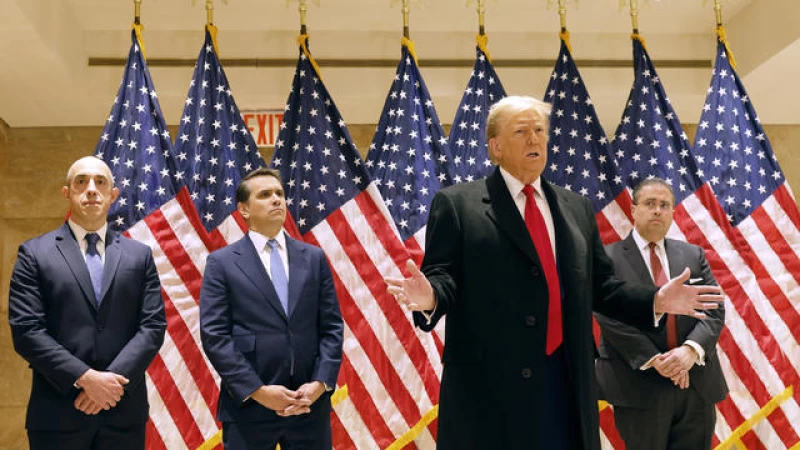There's one question both prosecutors and Republican hiring bosses want to know: "Do you believe the 2020 election was stolen?"
After a recent purge of the Republican National Committee, when the new leadership backed by former President Donald Trump fired more than 60 staffers, job applicants for positions in key states are being asked about their views of the 2020 election results, according to two Republican sources with knowledge of the matter, who spoke on the condition of anonymity to CBS News. This line of questioning appears to be a test of their loyalty to Trump — and was described as "insane" by a Republican Party source with knowledge of the interviews.
The same question has been raised in Manhattan courtrooms. It was posed to jurors in a recent civil trial in which Trump was a defendant, and may be posed during jury selection in his upcoming criminal trial.
Trump's first criminal trial, centering around "hush money" payments made to adult film star Stormy Daniels, is set to begin in April. Prosecutors see asking potential jurors for their perspectives on the 2020 election results as a way to glean whether "they can be fair and impartial."
Joshua Steinglass, a lawyer for the district attorney, argued during a Feb. 15 pretrial hearing that jurors should be asked if any of them believe the 2020 election was stolen since "an affirmative answer here demonstrates an unwillingness to follow the facts and blindly rely on statements" made by Trump and could indicate that a juror "may not be willing to follow" the judge's instructions.
"Over half the population of this country believe the election was stolen," responded Trump attorney Todd Blanche, citing no evidence to back up that claim, while disputing the need for the question. "This has nothing to do with the facts of this case."
Trump has been charged with 34 felony counts of falsifying business records as part of an attempt to cover up the story of his alleged affair with Daniels from coming out before the 2016 election. He pleaded not guilty to all charges.
His allegations claiming election fraud during the 2020 presidential election have been proven baseless.
A prosecutor acknowledged copying the election question from jury selection in another recent trial. Left unsaid was that it was a case Trump had lost.
During jury selection in the January trial pitting Trump against the writer E. Jean Carroll, prospective jurors were asked if any of them thought the 2020 presidential election had been stolen. When a man and a woman stood up, Trump turned to look at each of them. His adviser, Boris Epshteyn, sat behind him and appeared to smile.
Trump found himself in a courtroom facing a jury for the first time during one of his trials. He observed the potential jurors closely as they were questioned about their political affiliations, voting history, and attendance at Trump rallies. Those who believed the election was stolen were not chosen for the jury.
The Manhattan district attorney's office praised Judge Lewis Kaplan for efficiently selecting jurors for the Carroll case based on their responses to the political questions.
Despite being ordered to pay Carroll $83.3 million, Trump is appealing the verdict.
The debate over how much jurors should disclose about their political beliefs is a recurring theme in the former president's legal proceedings. Special counsel Jack Smith has suggested that potential jurors in the Florida classified documents case be questioned about their opinions on the 2020 election.
During a February hearing, Blanche captured the essence of what both sides are seeking to uncover from potential jurors.
"The ultimate question, for us and for them, is: Do they support President Trump?" he remarked.







